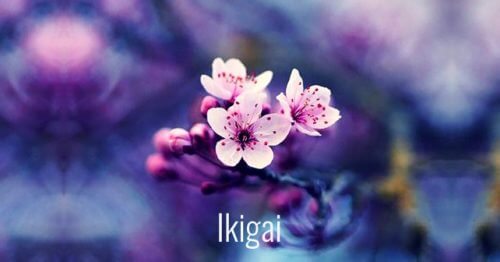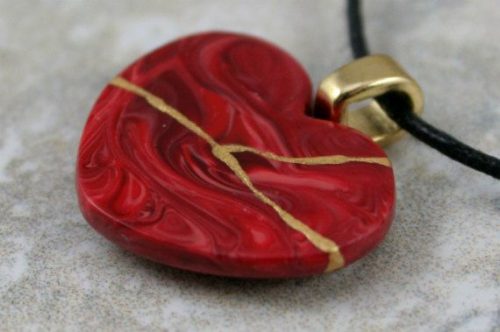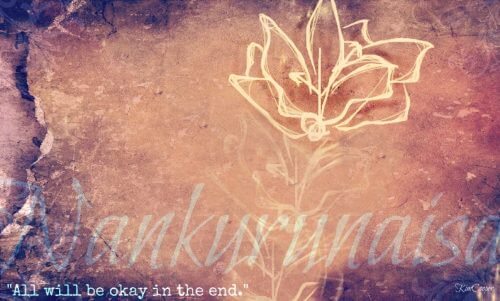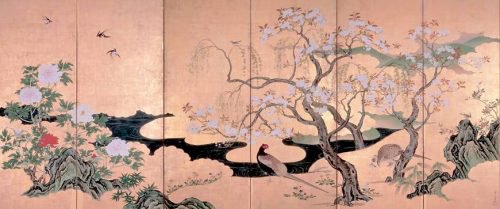
Uncategorized
06.10.2016
Japanese Word Images for the Word “Life”
生命 means Life
The left side Japanese word “生命(せいめい-seimei)” means “Life”.
The below images are Japanese Kanji and Hiragana of some Japanese words which mean “Life”.
You can learn how to write these Japanese words by referring the stroke orders of these words.
生命 means Life
Hiragana for 生命
Stroke Order for 生命
And the word “life” covers the wide area of our “daily life”, so in Japan we translate this word in many ways such as “命(いのち-inochi)” or “生涯(しょうがい-shougai)” etc.
命 means Life
Hiragana for 命
Stroke Order for 命
生涯 means Life (Lifetime)
Hiragana for 生涯
Stroke Order for 生涯
Japanese is quite interesting and when I search more about Japanese language, I found some pretty interesting words with really deep meaning behind it. So here I would like to share of the them, pretty meaningful and pretty interesting:
1 — Itadakimasu
This is a pretty well-known Japanese word, even for people who haven’t learned Japanese before. In simple way, we can understand «Itadakimasu» as «Thanks for the meal» or «Let’s eat». However, if we dig in deeper, we can say «Itadakimasu» is somewhat relate to Buddism. The action of clasping 2 hands together with slight head bow can be seen as an act of prayer. In Buddism, all lives are considered to be precious, when you do «Itadakimasu», you have to finish all your meal as a way to express gratitude since the «food» gave it life to you.
2 — Shinrin-Yoku
This one is a really cool Japanese word as it refers to the action of going into the forest to relax and enjoy life. In English, «Shinrin-yoku» can be translated to «Forest-bathing» (pretty interesting translation, too). On the contrary to its «fancy name», this activity is not hard to do, simply go into the forest, walk slowly and breathe, submerge ourselves into the nature. As it is proved, «Shinrin-yoku» is a excellent healing way, it can help alot in improving human’s health such as reducing blood pressure, reducing stress, improving mood, improving sleep and body energy, .etc… In term of spiritual idea, it is like becoming one with the nature, relax and put all worries behind for better present, and future. If you are interested in this activity, you should check out this site for more information.
3 — Ikigai
Are you struggling to find your dream? Are you struggling to find your purpose in life? If that is the case then this meaningful Japanese word will give you a big help. In Japanese, «Ikigai» means «reason for being», or we can say «reason for living». The more we think about it, the more meaningful things we can see around this word. If we divide this word, we will have «iki» which refers to «life» and «kai» which basically means «realizing what we expect or hope for». We can also translate «Ikagai» as «the thing that makes you wake up everyday», so let ask ourselves: «What give us motivation to get up in the morning?».
4 — Yugen
Brace yourself because we are going deep into meaning of one part of Buddism in general and Japanese culture in particular — Yugen. «Yugen» are explained to be awareness of the Universe which triggers the emotion and feeling about the world. Sounds complicated isn’ it? To make it easier to understand, first we will have to understand one concept from Buddism which is «nothingness». «Nothingness» does not mean «non-existance», but rather means «everything will constantly changing, some will evolve, some will dissolve, that is the way of the world». In Japanese concept of aesthetic, this means appreciating the constant changes of the world, instead of clinging into the clinging into the forever existance of things, such as the sunset scenery, or gazing at the boat which are gradually disappearing. If we apply this meaning into daily life, we will see that everything around us will constantly change, for this reason, we should focus on our present, instead of clinging into the glory or the sorrow of the past, as everything will disappear, and only present remains.
5 — Hikikomori
«Hikikomori» is actually not a popular Japanese word around the world until recent years. However, in truth, it refers to a real-life situation, or people who locks themselves in their own room, seperating themselves from society. This situation is seen as a extreme state of isolation, the bad part is that it happens more and more nowadays. This might not be the worst in other countries, but in Japan, seems the percentage of «hikikomori» increases so much that Japanese Ministry of Health has to give out a definition and 6 different criterias for «hikikomori». Interesting Japanese word, but quite terrifying at the same time indeed.
|
||
 |
I know that 人生 is used for “human life”, and 生命 for “life” in the biological sense.
But I want to express that life (whatever) is something good, something positive and I don´t know if it’s possible.
asked Nov 3, 2014 at 4:45
1
What about いのち (and the kana spelling here is intentional):
盗人が来るのは、ただ盗んだり、殺したり、滅ぼしたりするだけのためです。わたしが来たのは、羊がいのちを得、またそれを豊かに持つためです。 (ヨハネ福音の10:10)
My other thought is ライフ in the katakana.
My sensibilities could be off on both of those since I’m not a native speaker, but I get the impression that the 和製英語 has a positive feel to it and the other can mean life in the sense you would want to call good better than 生命 or 人生.
answered Nov 3, 2014 at 4:51
virmaiorvirmaior
8,1361 gold badge22 silver badges50 bronze badges
1
You must log in to answer this question.
Not the answer you’re looking for? Browse other questions tagged
.
Not the answer you’re looking for? Browse other questions tagged
.
4 Mins Read
Have you been searching for a way to describe something you’ve felt, and just can’t pin down using the English language? We’ve definitely felt that way before. Luckily, there are some Japanese words that are just so relatable, and we are here to share them with you! Here are 7 Japanese words that seem to perfectly condense an indescribable feeling or activity in a straightforward way:
1. Mottainai
Mottainai is a term that has recently been picked up by environmental activists, especially ever since a certain Japanese lady created a minimalist craze. In Japanese, mottainai is an expression of regret over waste – it literally translates to “what a waste!” Since being used by Kenyan green activist Wangari Mathai at a United Nations conference, the term has become a slogan to promote protecting our planet through reducing, reusing and recycling. In addition to the primary use of the word to describe wastefulness in Japanese, it is also used to mean “more than one deserves.”
Use it in a sentence: “After a marathon of Marie Kondo on Netflix, Nadine can’t stop lecturing us about mottanai.”
2. Shinrin-yoku
Are you in need of an outdoor nature activity that will make you feel good? In Japan, there is something called shinrin-yoku, the practice of forest bathing. It involves immersing yourself in the atmosphere of the forest, taking it in through your senses to restore mood and energy. The practice has its roots in the worship practices of Shinto and Buddhism. First developed in 1982 by Japan’s Ministry of Agriculture, Forestry and Fisheries as a response to the emergence of karoshi (death by overwork), it has since become a popular therapy option.
Use it in a sentence: “My weekly hikes really help me get some much-needed shinrin-yoku.”
Read more about Shinrin-yoku & Why Trees Are So Magical
3. Satori
Satori is a Japanese Buddhist term, derived from the verb satoru, and it means awakening or understanding. In the Zen Buddhist tradition, satori is used as a reference to experiencing and realising one’s true nature – a state of enlightenment. According to D.T. Suzuki, satori is at the core of Zen thinking. You’ll also be surprised to know that the term also exists in Chinese (悟), which when used in conjunction with other characters is an expression for consciousness, awareness or the power of understanding.
Use it in a sentence: “A month-long yoga retreat in Bali helped Lily find satori.”
4. Hikikomori
Hikikomori describes socially withdrawing, shutting yourself out from the world, or pulling inward. Sometimes used to categorise a group of reclusive adolescents or modern-day hermits, we can perhaps use hikikomori as a warning that we have to take care of ourselves and our mental health. Yes, no matter how much of a social butterfly you might be, we all need some me-time sometimes. But if you are struggling, it’s always okay to reach out to those around you for help.
Use it in a sentence: “During Joanna’s hikikomori phase, she became increasingly anti-social.”
5. Oishii
Simply meaning tasty or delicious, oishii is definitely a term we should live by. Food should be shared, it should be enjoyable and it should be oishii! So next time you sit down with your family for a mouth-watering home-cooked meal, or if you’re out on a luxurious dinner date, remember to give the chef of the night a compliment in Japanese.
Use it in a sentence: “The oishii quotient was off the charts at Green Queen’s latest vegan dinner.”
6. Wabi-sabi
Wabi-sabi is a perspective that accepts transience and imperfection in aesthetics. It is about seeing beauty in something that might conventionally be perceived as incomplete or imperfect, and appreciating that things are not always permanent. In design, qualities of the wabi-sabi aesthetic include asymmetrical shapes, roughness, minimalism, and natural. In a broader sense, the term means to find natural objects and our surrounding environments fascinating. The Japanese, for instance, often use the term to describe fading autumn leaves – changing over time, imperfect, yet beautiful.
Use it in a sentence: I’m all about wabi-sabi these days- perfection is so overrated.
7. Ikigai
We saved the best-known one for last, of course. Ikigai is the now-famous Japanese concept that roughly translates to “reason for being”. It is usually used to indicate what one’s purpose is, or the things that make life worth living. It is also a deeply personal term – each person’s ikigai is specific to one’s own value system, beliefs and life experiences and reflects the inner self. Activities that allow ikigai to be felt are not forced, but are spontaneous and comes out during a mental state of ease. So what’s your reason for waking up each morning?
Use it in a sentence: “It took a few years, but I’ve finally found my ikigai in life and I can’t wait to pursue my passion.”
Lead image courtesy of Pexels.
The Japanese language is unique and thanks to its ideograms it is able to express words with abundant meanings and with its own concept. In this article, we are going to share 7 Japanese words that can guide your life for the better.
The Japanese know the concept of their words, their origin, meaning and idea thanks to the ideograms that facilitate this process. Unfortunately in Brazilians, most of the time, we do not know the origin of the words in our language.
Everything in the Japanese language has an interesting meaning and origin that can be discussed. We will go through life without knowing the whole essence of words, but we can know the important words that can guide and change our life.
The Japanese Word Ikigai – 生き甲斐 – Life Purpose
If we are talking about words that can guide our lives, then of course we must start with a purpose, objective or motivation to live. Ikigai literally means life purpose and is a very important word for the Japanese.
It is written with the characters of [生き] which means to live and [甲斐] which means value, effect, result or result. Ikigai is such a powerful word that it involves an entire art, philosophy, concept and secret behind the word.
There are people who dedicate their entire lives to studying Ikigai and helping others to discover the purpose of life. We have already written an article talking about this word, click here to read more about Ikigai.
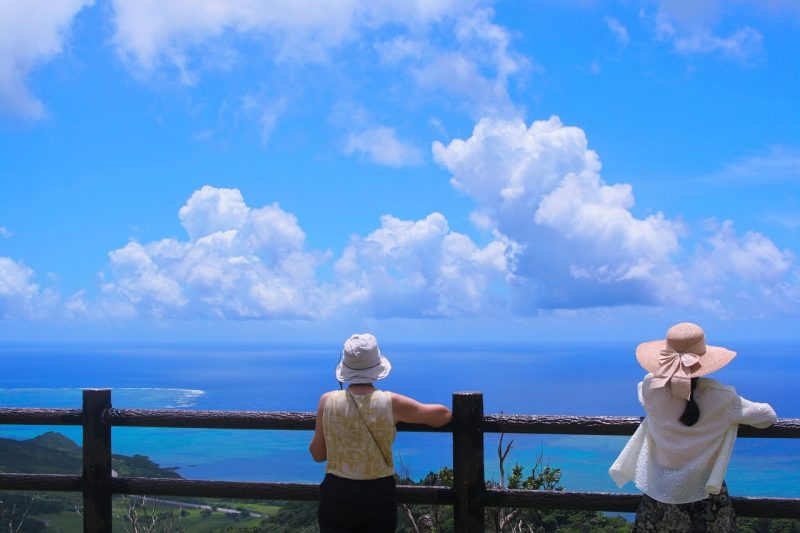
The Word Yoisho – よいしょ – EFFORT
The word Yoisho is a little unknown, it is not usually taught in school, nor in Japanese courses. Despite all this, it is a word widely known and used among the Japanese. Yoisho is a cry of encouragement to yourself or others.
A word that is seldom written but often spoken during an action to express effort or relieve tension. For example, a group of people who are about to lift something heavy. Or it can be spoken alone when we are tense to give a certain strength.

The most amazing thing is how this word is spoken a lot, but not written about it, thus showing its omnipresence. This word accompanies the Japanese throughout their lives, in their daily struggles. It may not seem important, but it’s a word that can move mountains.
The word yoisho is considered a kakegoe [掛け声] a word meaning battle cry or encouragement used in events such as taiko, good odori, kabuki, undokai and others. Yoishi goes far beyond that and is part of the daily life of the Japanese.
The Word Shouganai – 仕様がない – To accept the inevitable
THE shouganai word it means it can’t be helped, it can’t be done, it’s inevitable, there’s no solution or the like. Yet that word is not always discouraging or hopeless.

We live in a world where the things we want don’t always work out. To say Shouganai is to accept that loud is out of your control. Many use this word to encourage people to realize that something was not their fault.
Accepting that something didn’t work out is a solution for us to move forward without regrets. The shou [仕様] of shouganai means path, method, resource or something specific. Since our paths don’t always work out, shouganai will help guide our lives.
The Word Wabi Sabi – 侘び寂び – World View
The next Japanese word that will guide your life is quite comprehensive and involves a complete view of the world through aesthetics. This aesthetic sense of Japanese art is centered on acceptance, transition, and imperfection.
Despite being a word involving art, its meaning refers to the way of life that consists of accepting life’s imperfections, the natural cycle of growth and decay. Through wabi-sabi, it is possible to empty the mind and bring tranquility.
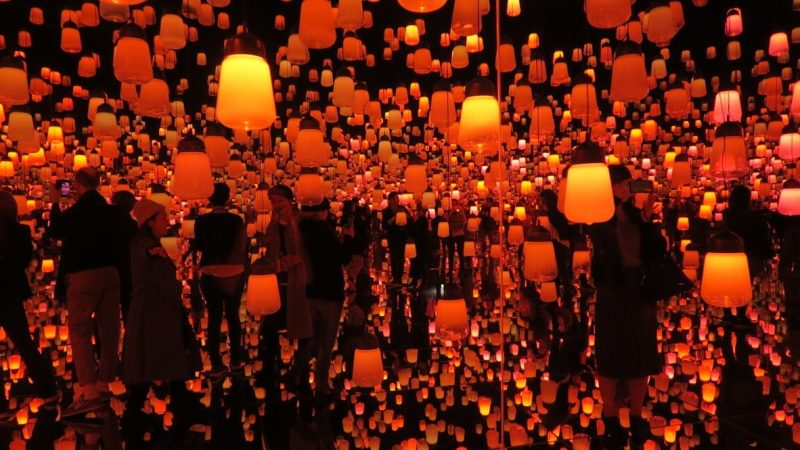
The aesthetics of wabi-sabi involve asymmetry, roughness, simplicity, economy, austerity, modesty and intimacy. It sounds difficult to explain, but wabi-sabi can affect the way we live, decorate our home and appreciate nature.
The word Ganbatte – 頑張って – do your best
This is one of the most popular words in the Japanese language, its purpose is to encourage people to put effort into something. ganbatte It involves doing your best, going for it, staying focused, holding on, fighting, not giving up and working hard.
Ganbatte means to persevere, persist, insist and remain. Some end up translating ganbatte to good luck, as it is often said to people who are about to take a test or go through some difficulty.
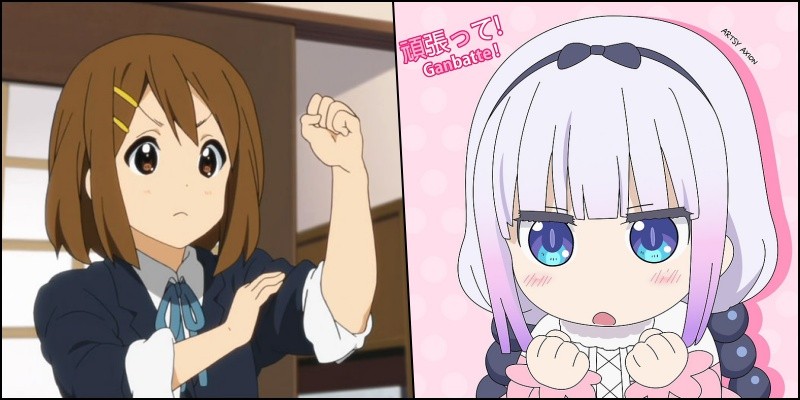
I want to take this opportunity and mention another related word which is akiramenaide [諦めないで] which means don’t give up, don’t lose hope. Both words tell you to never give up on life and face hardships hard!
The Japanese Word Kaizen – 改善 – Improvement
Kaizen is a Japanese philosophy and practice that promises to continually improve your projects, business, and even your health. Despite being applied most of the time within companies, understanding this word can help guide your life in a productive and improved way.
The concept of kaizen can help you cut expenses, get organized and increase productivity and dedication to something. This word was one of the main factors responsible for the growth of Japan and the dedication of the Japanese to various aspects of life.

Kaizen involves being transparent, focusing on the future, changing at any time, not being negative, not looking for perfection, prioritizing quality and not putting things off. If you let kaizen guide your life, it’s sure to be one of the best.
We have written a great article on Kaizen which you can read by clicking here. In addition, I will leave some interesting books on Kaizen below, in case you are interested in delving into the subject through reading.
The Word Omotenashi – お持て成し – Japanese Hospitality
Omotenashi goes far beyond a simple hospitality or education, involves a reception, treatment and service without superficiality. get involved strive for the next even when not requested or needed.
Omotenashi it involves treating your guest, client or neighbor in the best possible way. It’s like the golden rule that says «Treat others as you would like to be treated». And all this without being obligated, without expecting anything in return or for ulterior motives.
Some Egoists will find this totally unnecessary to guide our lives, but the way we treat others will affect our lives in the present or future. The lack of Omotenashi is one of the main reasons for a Catastrophic Brazil.
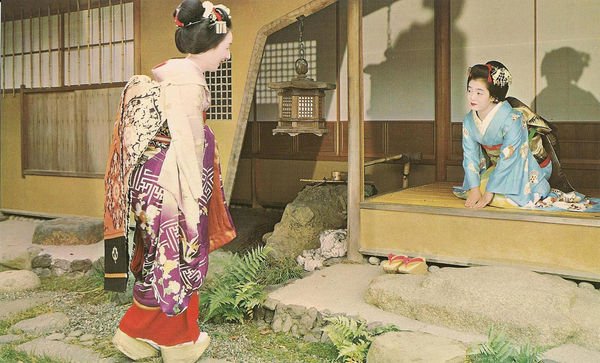
Omotenashi involves other words we know in English such as humility, honesty, friendship and love. These are words that we know very well and that can guide our lives in the best possible way.
If we apply the philosophies and lifestyles taught by all these words mentioned in the article, we will have a great compass to face all of life’s difficulties and have the best results.
I hope you enjoyed the article, if you liked it share and leave your comments. Of the thousands of Japanese words, what other word do you find interesting to guide our lives?
Discovering philosophies from other cultures through their words can help you think about life completely differently. Take a look at these beautiful Japanese words to get a new perspective of things.
When you learn about other languages and words, you discover how other cultures organize the world around them, their perceptions of life, and even their personal universe. Here we will talk about some very interesting japanese words.
Japanese culture is known for having certain terms that encompass a series of ideas that tend to surprise, captivate, and draw in Westerners.
Japanese Words to Help Personal Growth
These invite you to deeply reflect on things and incorporate certain concepts that favor changes, personal growth, an understanding of new perspectives. Above all, they favor cultural and psychological enrichment.
Here we invite you to do this. We’re sure you’ll find these Japanese words to be as interesting as they are curious.
1. Ikigai, your reason for being
The first of these Japanese words is Ikigai. Everyone should have their own ikigai. This is a motive, purpose, illusion, or vital goal that gives you the strength and energy every morning to start your day.
As everyone knows, however, not everyone has discovered it yet. That’s why some people spend a long time feeling lost without a course or motivation that can bring them real and tangible happiness.
This is an interesting concept that you should definitely consider.
2. Kintsukuroi, repairing our wounds with gold
kintsukuroiemerge a stronger, more dignified, and more beautiful human being.
In Japanese culture, kintsukuroi refers to a technique that attempts to repair broken porcelain pieces.
Rather than discarding them, artists will join those pieces with a putty that contains gold dust.
The cracks are visible because these veins show the strength of a unique object that tells its own story.
3. Aware, or the sorrow of transience
The next of these Japanese words is Aware. Life moves quickly and does not wait for anyone. It’s fleeting, intense, and unforgiving. Love sometimes ends and friendships may expire. What seemed safe before suddenly ends, forcing you to start from scratch.
Within all of these processes is “aware,” one of the most transcendent words of the Japanese language.
With it, sadness is transmitted to the fleeting nature of things. In turn, there is the need to continue moving forward and closing doors to open new ones.
4. Majime, the person who knows how to be responsible
In Japanese, “majime” literally means a serious person.
Rather than understanding it to be a spontaneous little jab at someone’s closed or sullen appearance, however, it is above all a reference to their reliable character.
5. Nankurunaisa, one of the most beautiful words
Nankurunaisa is undoubtedly one of the most beautiful words of ancient Japanese and of this list of Japanese words to adopt in your vocabulary.
It refers to a classic idea within motivational psychology, personal growth, and even spirituality in which you are urged to trust in the future.
Everyone has been through times when in the midst of adversity, the only option you have is to trust.
You have to understand that the passage of time, together with your will to act and your spirit, will fix everything and bring new opportunities to your horizon.
6. Gaman, endure the difficulties with dignity
Gaman is another term that’s directly linked to the roots of Buddhism. It proposes a philosophy that will help you see your life in a different way.
This word actually contains several different ideas:
- The capacity for self-control.
- A need to be patient.
- The resistance to endure difficult and complex times.
- A need to be resilient and combine dignity and strength.
- The ability to overcome and to try to do something every day to feel better.
“Gaman” also integrates an equally important and valuable idea: not neglecting others.
You should not be a burden or a bother, but rather an understanding person who can understand those around you even in the midst of your own problems.
7. Wabi-sabi, the beauty of imperfections
It refers to the beauty that exists within the things that seem to be imperfect.
In turn, it conveys the idea that the truly beautiful things are simpler, more elemental and pure, no matter their small defects or imperfections.
It’s something you can apply to your daily life to correct that common obsession with idealized beauty, seeking perfection in your life or with your body, or even your relationships.
Accept that we are all flawed and beautifully imperfect.
Learn to apply these simple but interesting ideas from Japanese culture in your day-to-day life.
- How are the words “Life” and “Death” in Japanese pronounced?
- The difference between 生 and 命?
- The different ways “Life” and “Death” can be expressed in Japanese characters and symbols
- What words are in the Japanese symbol for “Life” and “Death” Used In?
- How is “Life” and “Death” expressed in Chinese?
- Stroke order for writing the characters in Japanese “Life” and “Death” and associated symbols.
- Historical forms of the chinese character for “Life” and “Death”
- So should you get “Life” and/or “Death” done as a tattoo in Japanese lettering?
There aren’t many more significant characters or symbols in Japanese than those for “life” and “death”. Not in any language, really.
These characters are used in various words that may have religious or cultural significance in Japan.
The first thing to know is that there a couple of close equivalents you could choose for the character for “life”, namely 生 and 命.
Death is a Japanese character that can be seen in various forms throughout Japanese culture. There are many stories and customs surrounding death, and the meaning behind the character has evolved over time. In general, death represents change and transformation, and it is often seen as a natural part of life.
How are the words “Life” and “Death” in Japanese pronounced?
The Japanese symbol for life is the kanji 生 (Sei), while death in Japanese symbol is 死(shi).
These are the most common symbols that are used in Japanese to contrast the concepts of “life” and “death”.
You will sometimes see paired tattoos of the “life” kanji on the upper arms of a man and woman (indicating unwavering love).
There is also the symbol or 命 (inochi) which also translates as life. We’ll take a look at the difference between these below.
The difference between 生 and 命?
Used in isolation, the character 命 (inochi) is probably closer to the Japanese word “life” in isolation than 生 (sei).
The character 生 in isolation is most likely to be read by a Japanese person as “nama” which variously translates as raw, unadulterated, untampered with etc.
That being said, if you want to express the ideas of “life and death” as a juxtaposed pair in Japanese, then the characters to use are 生 (sei) and 死 (shi).
生 (sei) is more associated with verbs like “to live” 生きる (ikiru) or to be born 生まれる (umareru), or in phrases like 生を受ける (sei wo ukeru) “to come into being”.
In relation to this 命 is used in words like life, spirit or soul.
The different ways “Life” and “Death” can be expressed in Japanese characters and symbols
- 生活(seikatsu)
Generally translated as lifestyle but can also be translated as “life”.
Example sentences:
日本でどんな生活をしていましたか。
nihon de donna seikatsu wo shite imashita ka.
What kind of lifestyle do you live in japan.
収入に応じた生活をするように。
juunyuu ni oujita sekatsu wo suru youni.
You should try to live within your means.
- 人生(jinsei)
Means one’s life, or a human life.
Example sentences:
幸福になりたいなら人生における境涯に満足することを学びなさい。
koufuku ni naritai nara jinsei ni okeru kyougai ni manzoku suru koto wo manabinasai.
If you wish to be happy, learn to be content with your condition in life.
人生は長い曲がりくねった道だ。
jinsei wa nagai magariku netta michi da.
Life is a long and winding road.
- 生きる(ikiru)
As a verb, “ikiru” means to live or to exist. Using the symbol 生 alone also means life, genuine and birth but most of the time it is used and read as Nama meaning raw.
Example sentences:
私は生きたままのエビを食べたくない。
Watashi wa ikita mama no ebi wo tabetakunai.
I don’t want to eat a live lobster.
私たちは原子力時代に生きている。
Watashitachi wa genshiryoku jidai ni ikite iru.
We are living in the age of nuclear power.
彼は生魚を食べない。
Kare wa nama sakana wo tabenai.
He doesn’t eat raw fish.
- 命(inochi)
“Inochi” means life, or lifespan, the usual word used in japan for life itself.
Example sentences:
自分の命を大事にしてください。
jibun no inochi wo daiji ni shite kudasai.
Please take good care of your own life.
その医者は私の命の恩人だ。
sono isha wa watashi inochi no onjin da.
The doctor saved my life.
- 終わり(owari)
Generally means to end, ending, close, or conclusion, but can also be used to express death in Japanese language.
私の人生はここで終わりなんだ。
watashi no inochi wa kokode owari nan da.
my life ends here.
- 逝去(seikyo)
Means death; passing.
Seikyo is a word from Japanese language that comes under the category of honorific or respectful language, called sonkeigo(尊敬語)
Example sentences:
ご尊父のご逝去に対し、謹んで哀悼の意を表します。
gosonpu no goseikyo ni taishi, tsutsshinde aitou no i wo arawashimasu.
Please accept my condolences on the death of your father.
- 死(shi)
Means death or, in it’s verb form 死ぬ (shinu), to die.
The reading of “shi” is identical to one of the pronunciations of the number 4 四 in Japanese. As a result, there is a superstition around avoiding the number 4, where possible, in Japan.
Example sentences:
人は生まれるやいなや、死に向かう。
hito wa umareru yainaya, shi ni mukau.
As soon as man is born, he begins to die.
突然の父の死の電話を聞いて、私はオロオロしてしまった。
totsuzen no chichi no shi no denwa wo kiite, watashi wa oro oro shite shimatta.
When I got the phone call telling me of my father’s death, I was completely flustered.
What words are in the Japanese symbol for “Life” and “Death” Used In?
- 死亡(shibou)
Means death, mortality, to die, to pass away. The second character 亡(bou or nai) means deceased, the late, dying and perish.
Examples sentences:
飛行機事故で多くの人が死亡した。
Hikouki jiko de ooku no hito ga shibou shita.
Many people were killed in the aeroplane accident.
彼の死亡告知が新聞に出た。
Kare no shiboukokuchi ga shibun ni deta.
An announcement of his death appeared in the newspapers.
- 戦死(senshi)
Senshi means death in battle. The first character 戦(ikusa, tatakau) means war, battle or match.
Example sentences:
彼女の息子の戦死の知らせに彼女は気が狂った。
Kanojo no musuko no senshi no shirase ni kanojo wa ki ga kurutta.
News of her son’s death in battle drove her mad.
多くの兵士達が英雄的な戦死をした。
Ooku no seishitachi ga eiyuudeki na senshi wo shita.
Many soldiers died a hero’s death.
- 生命(seimei)
Seimei means life and existence.
Example sentences:
彼は生命の危険をおかしてその山に挑戦しました。
Kare wa seimei no kiken wo okashite sono yama ni chousen shimashita.
He challenged the mountain at the risk of his own life.
太陽は生命に不可欠である。
Taiyou wa seimei ni fukaketsu de aru.
The sun is essential to life.
- 一生懸命(isshoukenmei)
Means to do one’s very hard, with utmost effort, with all one’s might, for dear life.
Example sentences:
一生懸命走ったが乗り損なった。
Isshoukenmei haashitta ga nori soko natta.
I ran as I could but missed the train.
一生懸命頑張りますのでチャンスを下さい。
Isshoukenmei ganbarimasu node chansu wo kudasai.
I’ll do my very best so give me a chance please.
How is “Life” and “Death” expressed in Chinese?
The chinese symbol for life is 生活 which is read as Shēnghuó and death is 死亡 read as Sǐwáng. Both life and death Chinese symbols are the same with Japanese symbols but they don’t have the same way of reading it.
Stroke order for writing the characters in Japanese “Life” and “Death” and associated symbols.
- 生活(seikatsu)
- 人生
- 生きる
- 命
- 終わり
Untitled-3.jpg
- 逝去
Untitled-4.jpg
- 死
- 死亡
- 戦死
Untitled-2.jpg
- 生命
- 一生懸命
Untitled-1.jpg
Historical forms of the chinese character for “Life” and “Death”
So should you get “Life” and/or “Death” done as a tattoo in Japanese lettering?
In conclusion, getting a tattoo for Japanese kanji for life and death is a personal choice that should be made carefully.
One big consideration is that when the character 生 (sei) for “life” is seen isolation, it is more likely to be read as “nama”, meaning “raw”. So you would need to be prepared for that.
The other stand-alone option is 命 (inochi), which by itself is probably closer to our concept of “life” with all its multiple nuances. That being said, this is not the character that gets used as contrast pair of “life and death”. For that you would use 生 and 死.
Consider all of the implications and make sure that you are comfortable with the design before going through with the tattoo.
A fair amount of people get tattoos of Japanese characters for death just because of the influence of anime, so you may also want to consider the somewhat “otaku” “nerd” kind of qualities that come along with getting “Life and Death” as a tattoo in Japanese.
Contributor
Article by Dhanie James Perez
Japanoscope uses affiliate links, which means that commissions may be received when you click on links to products from partner retailers.

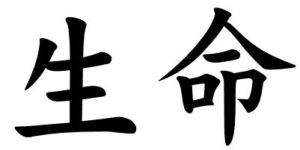


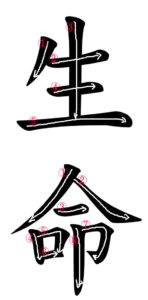
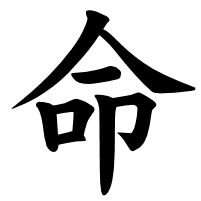





 Here is how to say life in japanese:
Here is how to say life in japanese:
